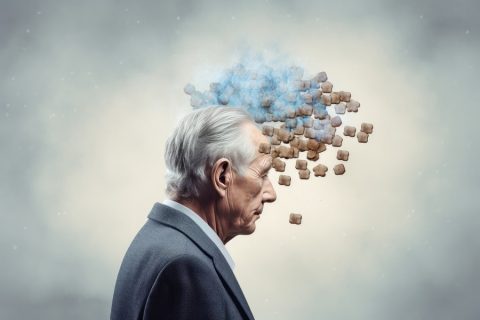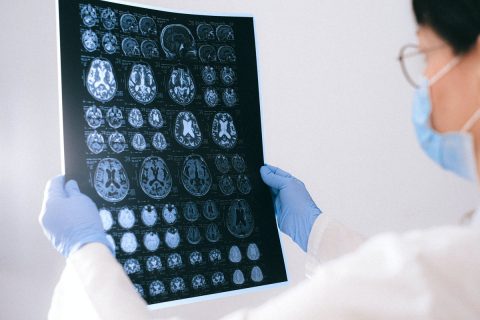Have you ever seen a loved one struggle to recollect things they used to remember easily? Perhaps they become confused or disoriented in familiar settings. These could be early indicators of dementia, a collection of disorders that affect memory, thinking, and behaviour. Recognising these indicators early on is critical for appropriate diagnosis and intervention, resulting in enhanced quality of life for both the individual and their carers.
This detailed guide delves into the realm of dementia, outlining its warning signs, diagnosis procedures, and even preventive treatments. Let us walk through the many stages of dementia, ask typical questions, and prepare ourselves to confront this issue successfully.
The 10 Warning Signs of Dementia
Dementia isn’t just about forgetting names or appointments. It manifests in various ways. Here are ten key signs to watch out for:
- Memory loss that disrupts daily life: Forgetting recent conversations, appointments, or where you placed things are common red flags.
- Challenges in planning and problem-solving: Difficulty managing finances, following recipes, or making decisions can be indicators.
- Difficulty completing familiar tasks: Activities like getting dressed, driving, or playing games become increasingly challenging.
- Confusion with time or place: Getting lost in familiar places, forgetting the date or time, or experiencing sundowning (confusion worsening at night) are potential signs.
- Trouble understanding visual images and spatial relationships: Difficulty judging distances, reading maps, or navigating new environments may arise.
- New problems with words in speaking or writing: Struggling to find the right words, using incorrect words, or having trouble following conversations can be concerning.
- Misplacing things and losing the ability to retrace steps: Frequently losing important items and being unable to find them again is a common symptom.
- Decreased or poor judgement: Making questionable decisions regarding finances, safety, or personal hygiene might be a sign.
- Withdrawal from work or social activities: Loss of interest in hobbies, social events, or work due to increasing difficulties.
- Personality or behaviour changes: Becoming withdrawn, irritable, anxious, or suspicious can be indicators.
It’s crucial to note that not everyone gets all of these symptoms, and their intensity varies. However, if you experience multiple of these symptoms in yourself or a loved one, see a doctor.

Understanding Dementia Diagnosis
Diagnosing dementia is a multi-step procedure. Doctors often undertake a complete medical history review, cognitive evaluations, and, in some cases, brain scans to rule out other possible causes. There is no one “2 finger test” for dementia, but cognitive evaluations evaluate memory, thinking skills, and problem-solving ability.
While there is currently no cure for dementia, early detection allows for the implementation of treatment strategies that manage symptoms, maximise independence, and enhance overall quality of life.
Dementia Stages: Progression and Expectations – A Journey of Change
Dementia is not a single disease, but rather a catch-all term for a variety of disorders that induce a loss in cognitive function. This decline often occurs in stages, with each stage bringing new obstacles. While the number of steps varies based on the classification system employed, they always follow a similar pattern.
Early stages are characterised by minor changes in memory, thinking, and behaviour. Individuals may forget names or appointments more frequently, struggle with planning or problem-solving tasks, or have minor difficulties with routine chores like as cooking or paying bills. They may become withdrawn or uneasy in social situations, and their judgement may be significantly compromised.
Middle Stages: As the disease advances, the problems grow more severe. Memory loss grows more severe, disrupting daily activities. Confusion and disorientation grow, making it difficult for people to traverse familiar environments. Difficulty communicating verbally and interpreting spoken language may arise. They may require support with certain daily chores, such as money management or personal hygiene. Personality changes become more apparent, including increased anxiety, impatience, and even hostility.
Later Stages: These stages require a high degree of reliance on carers. Individuals may need assistance with all everyday tasks, including as clothing, bathing, eating, and using the restroom. Communication is extremely limited, making verbal communication difficult or even impossible. They may undergo major sleep changes and require regular care to guarantee their safety. It is critical to realise that the rate of progression might vary significantly. Some people progress through the stages quickly, while others may stay in one stage for years.

Dementia Management: A Multifaceted Approach
While there is currently no cure for dementia, there are treatment options available to manage symptoms, slow progression, and improve quality of life. Here’s a look at some key strategies:
- Medications: Certain medications can help manage symptoms like memory loss, behavioural changes, and sleep disturbances.
- Cognitive Therapies: These therapies can help individuals with dementia maintain cognitive skills and improve their ability to perform daily activities.
- Lifestyle Modifications: Maintaining a healthy diet, engaging in regular exercise, and getting quality sleep can all contribute to managing dementia and promoting overall well-being.
Support Systems: Dementia can be a challenging journey for both the individual and their caregivers. There are many resources available to provide support, including:
- Support groups: Connecting with others who are facing similar challenges can be a source of comfort and guidance.
- Social services: Many communities offer services like home healthcare, transportation assistance, and adult daycare programs to support individuals with dementia and their caregivers.
- Family counselling: Counselling can help families navigate the emotional challenges of dementia and develop effective communication and caregiving strategies.
Self-Assessment for Dementia: Be Proactive But Seek Professional Guidance
While there are no definite self-tests for dementia, there are methods available to help raise awareness of probable cognitive deterioration. Brain training apps and online memory tests can provide an overview of cognitive performance. However, it’s important to understand that these tools aren’t diagnostic. If you observe any alarming signs or symptoms in yourself or a loved one, a formal examination by a healthcare professional is required to get an accurate diagnosis and build a personalised treatment plan.
The Final Stages of Dementia: Compassionate Care Throughout the Journey
The last stages of dementia require a high level of care. Individuals may require assistance with their daily activities and lose their vocal communication skills. It is critical to maintain open communication with healthcare experts in order to plan for these scenarios and ensure the individual receives the attention and assistance they require. Here are some important points to remember:
- Maintaining Comfort: Pain management and creating a comfortable and familiar environment are crucial priorities.
- Emotional Connection: Even in the later stages, emotional connection and compassionate care remain essential. Non-verbal communication and spending quality time can provide comfort and a sense of security.
- Advance Directives: Discussing end-of-life care preferences with the individual (when possible) and having the appropriate legal documents in place can ensure their wishes are respected.
Remember, dementia is a journey, and compassion and support are essential at every stage.
Early Signs of Dementia: Don’t Miss the Subtleties
The earlier dementia is detected, the sooner interventions can begin. Some of the earliest signs of dementia can be subtle, so staying alert is crucial. Here’s what to watch out for:
- Increased forgetfulness: While occasional forgetfulness is normal, forgetting important things more frequently can be a red flag.
- Asking repetitive questions: Continuously repeating the same question or needing frequent reassurance can be a sign of early memory decline.
- Struggles with familiar tasks: Simple tasks like managing finances, following recipes, or using electronic devices may become more challenging.
- Loss of interest in hobbies: A once passionate hobbyist may suddenly lose interest in activities they used to enjoy.
- Changes in mood or personality: Developing unusual irritability, anxiety, or social withdrawal can be early indicators.
Warning Signs in Older Adults: Age and Dementia Risk
Dementia is not a normal part of ageing, but the risk of having it increases with age. This is because the brain changes throughout time, making it more susceptible to dementia-causing disorders such as Alzheimer’s. However, it is critical to realise that dementia is not inevitable.
Older persons, particularly those with a family history of dementia, must be aware of potential warning signals. These may be subtle at first, but by remaining attentive, you or a loved one can seek expert assistance sooner rather than later. Early intervention can dramatically improve disease progression and quality of life.
Early Warning Signs: Seizing the Opportunity for Intervention
Early detection of dementia is similar to catching a flight during the golden hour: it allows you to capitalise on important chances. Why is this important? Because in some circumstances, the reason of cognitive decline may be addressed. For example, a vitamin shortage or a drug adverse effect may resemble dementia symptoms. Getting a diagnosis early allows you to address the underlying issues, potentially reducing or even reversing cognitive deterioration.
Furthermore, early intervention facilitates the deployment of successful symptom management measures. This could include drugs, cognitive therapy, and lifestyle changes. Individuals with dementia who take these actions early on can maintain a better level of independence and function for longer periods of time, improving their overall well-being.
Apathy as an Early Indicator: Understanding the Disconnect
Apathy, or a lack of drive or interest in formerly enjoyable activities, might be an important early indicator of dementia. Consider a loved one who was formerly passionate about gardening but has suddenly lost interest in caring for their beloved flowers. This discrepancy between previous and present behaviour can be a critical indicator.
Individuals with dementia-related apathy may withdraw from social contacts, abandon hobbies they formerly enjoyed, and exhibit a diminished emotional response to events or situations that would ordinarily elicit a reaction. Recognising this emotional detachment is a critical step towards getting a diagnosis and the help you need to manage your disease properly.
Signs and Symptoms of Cognitive Decline: When to Be Concerned
Here are some general signs of cognitive decline that warrant a doctor’s visit:
- Difficulty concentrating or focusing for extended periods.
- Taking longer to complete familiar tasks.
- Struggling to follow conversations or losing the thread of discussions.
- Making impulsive decisions or displaying poor judgement.
- Difficulty with spatial awareness or coordination.
Early detection is key! If you notice a combination of these signs in yourself or a loved one, schedule a consultation with a healthcare professional.
The Importance of Early Detection in Dementia Management
Early detection offers several advantages. It allows for timely diagnosis, which can lead to:
- More effective treatment options: Early intervention can slow down the progression of dementia and improve quality of life.
- Improved planning for the future: Early diagnosis allows individuals and families to make informed decisions about care and support needs.
- Reduced stress and anxiety: Knowing the diagnosis can help manage expectations and alleviate anxiety for both the individual and caregivers.
Dementia and Age Range: When to Start Looking Out
Dementia can develop at any age, but the risk increases significantly after 65. However, some forms of dementia, like early-onset Alzheimer’s, can appear in individuals as young as 30.
It’s never too early to be aware of the signs and symptoms of dementia.
The Final Days of Dementia: Comfort and Care
The final days of dementia can be a very challenging time for both the individual and caregivers. Here are some things to expect:
- Increased dependence on care: Individuals may require full-time assistance with all daily activities.
- Changes in communication: Difficulty speaking or expressing needs verbally is common.
- Pain management: Comfort and pain management become crucial priorities.
Palliative care specialists can provide valuable support in managing symptoms and ensuring comfort during this time.
Sleep Patterns and Dementia: Understanding Disruptions
Sleep disturbances are a common symptom throughout the course of dementia. These disruptions can manifest in various ways:
- Difficulty falling asleep or staying asleep: Individuals may experience fragmented sleep or waking up earlier than usual.
- Sundowning: Increased confusion, agitation, and anxiety may worsen in the late afternoon or evening.
- Restless sleep: Individuals may become restless or fidgety during sleep.
Addressing sleep issues can significantly improve overall well-being for individuals with dementia.

Preventive Measures Against Dementia: Taking Charge of Your Brain Health
While there’s no guaranteed way to prevent dementia, certain lifestyle practices can reduce the risk:
- Maintaining a healthy diet: A balanced diet rich in fruits, vegetables, and whole grains is essential.
- Regular exercise: Aim for at least 30 minutes of moderate-intensity exercise most days of the week.
- Mental stimulation: Engage in activities that challenge your brain, like puzzles, learning a new skill, or social interaction.
- Quality sleep: Aim for 7-8 hours of quality sleep each night.
- Stress management: Chronic stress can negatively impact brain health. Practice relaxation techniques like meditation or yoga.
Frequently Asked Questions
What specific benefits does the 2 finger test offer for dementia diagnosis?
There is no single “2 finger test” for dementia. Doctors use cognitive assessments to evaluate memory, thinking, and problem-solving abilities. While not a definitive test, it can provide clues about cognitive decline.
Chronic stress can negatively impact brain health. Research suggests high cortisol levels (stress hormone) might be linked to problems with memory and brain function associated with dementia. However, more research is needed to understand the exact link.
Doctors use a multi-step approach, including:
Medical history review
Cognitive assessments
Brain scans (sometimes)
These tools help rule out other conditions and assess cognitive decline.
There isn’t a universally recognized “Stage 7” for dementia. However, later stages typically involve:
Significant dependence on care for daily activities
Difficulty communicating verbally
Increased need for comfort and pain management
Sleep disturbances are common throughout dementia, but may worsen in later stages. Symptoms include:
Difficulty falling asleep or staying asleep
Sundowning (confusion & agitation at night)
Restless sleep
Dementia risk increases with age, especially after 65. However, some forms can appear in younger individuals (e.g., early-onset Alzheimer’s).
There is currently no cure for dementia. However, medications, therapies, and lifestyle changes can manage symptoms, slow progression, and improve quality of life.
While not a definitive test, brain training apps and online memory tests can offer a general idea of cognitive performance. A doctor’s diagnosis is crucial.
Increased dependence on care for all daily activities
Difficulty communicating verbally
Focus on comfort and pain management
Yes, sleep disturbances are common. These can include difficulty falling asleep, staying asleep, sundowning, and restless sleep.




